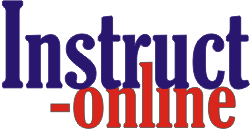
 Phone
(319) 626-2302
Phone
(319) 626-2302
Catalog Number : ngd1729
Title : 34 Safe Practices for Better Healthcare - Safe Practices 19-34
Speaker : Sue Dill
Webplay Recording Date : 2-15-2011
Webplay Price : $ 200 for two weeks viewing
Webinar Purpose:
This webinar will cover the National Quality Forum 34 Safe Practices for Better Healthcare. These have been endorsed not only by the National Quality Forum but many other organizations. The 34 practices are divided into seven broad categories. Each will be discussed and resources will be provided to help implement each of these practices. They represent the most current evidence-based practices and are a must attend for any hospital or other healthcare facility that is serious about patient safety. Healthcare leaders and governing boards are explicitly called on to be proactive by reviewing the safety of their organization and the quality of care provided. Implementing the 34 Safe Practices can also reduce medical malpractice exposure, increase compliance with accreditation standards and CMS standards and improve patient safety. Is your hospital following all 34 Safe Practices?
Note: This series are broken up into 2 different sections due to the amount of information. The dates are listed below under topics on what is covered which day.
Target Audience:
- Quality and PI Staff
- Chief Nursing Officer
- Patient Safety Officer
- Nurse Managers
- Staff Nurses
- Physicians
- Compliance Officer
- Nurse Educator
- Joint Commission Coordinator
- Risk Manager
- Pharmacists
- Director of Pharmacy
- Pharmacist
- Infection Preventionist
- Director of Health Information Management
- Patient Safety Committee Members
- Senior Leadership Staff
- Board Members
- Radiology Staff
- Chief Medical Officer
- and all others interested in improving patient safety in healthcare
Webinar Objectives:
- Explain implementation of preventing wrong-site surgery and discuss recent studies to show how frequently this is occurring
- Discuss recommendations to reduce pressure ulcer prevention and why documentation of this is so important when the patient is admitted for reimbursement
- Describe actions that can be taken to prevent patient falls
- Recall recommendations for pediatric imaging to reduce unnecessary exposure to ionizing radiation
A Few of the Topics that will be covered:
-
Chapter 7: Improving Patient Safety through the Prevention of Healthcare-Associated Infections
-
Safe Practice 19: Hand Hygiene
-
Safe Practice 20: Influenza Prevention
-
Safe Practice 21: Central Line-Associated Bloodstream Infection Prevention
-
Safe Practice 22: Surgical-Site Infection Prevention
-
Safe Practice 23: Daily Care of the Ventilated Patient
-
Safe Practice 24: Multidrug-Resistant Organism Prevention
-
Safe Practice 25: Catheter-Associated Urinary Tract Infection Prevention
-
-
Chapter 8: Improving Patient Safety through Condition- and Site-Specific Practices
-
Safe Practice 26: Wrong-Site, Wrong-Procedure, Wrong-Person Surgery Prevention
-
Safe Practice 27: Pressure Ulcer Prevention
-
Safe Practice 28: Venous Thromboembolism Prevention
-
Safe Practice 29: Anticoagulation Therapy
-
Safe Practice 30: Contrast Media-Induced Renal Failure Prevention
-
Safe Practice 31: Organ Donation
-
Safe Practice 32: Glycemic Control
-
Safe Practice 33: Falls Prevention
-
Safe Practice 34: Pediatric Imaging
-
Contact Hours:
- Nursing participants: Instruct-online has approved this program for 1.8 contact hours, Iowa Board of Nursing Approved Provider Number 339.
- All other participants: Must attend the entire Webinar and complete a Webinar critique to receive a 1.5 Hour Attendance Certificate for each program.
Completion of offering required prior to awarding certificate.
Refund Policy:
Full tuition is refunded immediately on request if the participant has not been sent the program materials and instructions. Once the instructions (including access codes) have been sent, a full refund will be issued only after the program runs and it is verified that the participant did not access the program
.